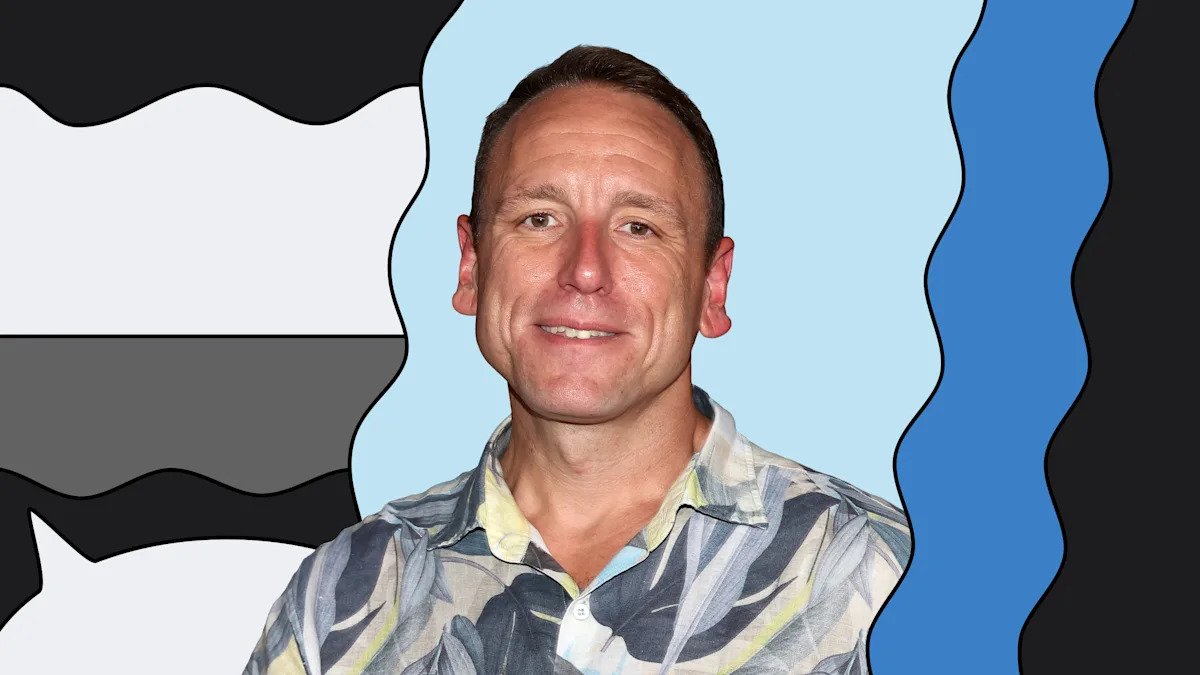Lifestyle
Joey Chestnut on the pain and weird joy of hot dog eating contests

Competitive eater Joey Chestnut is making his triumphant return to Coney Island this Fourth of July for the Nathan’s Famous Hot Dog Eating Contest, a year after he was banned for having a sponsorship deal with Impossible Foods. As told to Yahoo’s Meredith Begley, the 41-year-old Major League Eating champion — on the brink of his 20th Nathan’s appearance — opens up about training, recovery and overordering at restaurants.
The Nathan’s contest that started it all
I remember when [Takeru] Kobayashi won in 2001. I was at home at my parents’ house, and my little brother said, “You could eat 50 hot dogs.” And I was like, Yeah, but I don’t think I want to. I was always the biggest eater in the family. It was something I was self-conscious about. My mom would get mad at me if I ate really fast and didn’t leave any for anybody else.
In college, my friends signed me up for my first contest. It was lobster. My whole life, I had been self-conscious about eating fast in front of people, and then [here] people are cheering you on. I loved every bit of it.
My training regimen
I started a little late this year, in mid-May. I hadn’t eaten a Nathan’s hot dog in more than a year, so it took me a little bit of time to get back in the saddle. The natural casing is a little more work on the jaws. For practices, I stop eating for about a day and a half — almost no solid food. I make sure I go in empty and loose. I do a bunch of burping and stretching exercises to make sure my whole core is ready. Before Nathan’s, I like to do eight or nine [practices]. It gets more and more intense toward the end. Some practices take longer to recover from, especially if I’m doing it outside and it’s hot.
My race day strategy
Warm water is definitely important, but you don’t want it too warm if it’s hot outside. The warm water gets into the bun and helps your muscles in your throat and stomach relax. You just want to keep everything going down. But really, it’s just eating. Sometimes I find myself overthinking it. There’s not that many steps: Put it in my mouth, chew it, swallow it, breathe. The breathing is one thing that a lot of people forget to do. They end up holding their breath and then get winded. Some people overstuff their mouth. They just got to remember to swallow. So if I overcomplicate it [or] worry about the cups of water … all those things help a little bit, but the real basics are breathe, eat, chew and swallow.
I go in knowing that I have to be comfortable being uncomfortable. If I feel full, I’m not really full. If I feel tired, everybody goes through it. The whole thing about competitive eating is going against these feelings. I go in knowing that three hours after the contest, I’m going to be super-bloated and miserable. It’s like [how] some people like running a marathon, even though they look absolutely miserable. I could never do that. But being bloated, it’s uncomfortable but I enjoy it — especially after I win and I’m sweaty. I like being gross. It’s so weird. My biggest worry is if it’s super-hot outside and I’m dehydrated. Then my body just is not cooperating.
How I recover
Walks and sleep. Sleep is the most important. That night, I’ll try to eat salad or yogurt. Then the next day, even though I’m not hungry, I’m trying to eat fiber: cucumber, simple salads, lemon water. Lots of liquid. I try to stay away from carbs or sugar. I’m usually back on the hot dog wagon in, like, four or five days.
What I eat when I’m not competing
I eat a lot of salad. I’m an iceberg and romaine lettuce person. Arugula and spring mix — you can’t poke those two with your fork. I get cravings for good seafood a lot. My body digests seafood so well. Roasted radishes are really, really good. They’re almost like potatoes, but they’re very low-carb. [But] cooking stresses me out. I really love to eat. If it’s a weekend and I’ve been eating clean all week, I’m due to order four entrées. I pretend like, “Oh, we’re going to try this and take it home.”
The joys of competitive eating
The thing about competitive eating is everybody can kind of relate to it. Everybody has a food that they love, and everybody has stories about food where they feel like they dominated it. I kind of like it when people tell me that they can eat. It’s like I’m not the weirdo.
I think I’m always going to be a competitive eater. As long as my organs are working and I get my blood work done, I’m going to keep doing it. But I’ll be fine when the day comes and I’m not competing on the Fourth of July. But if I’m able to, I might as well, because I love it.
